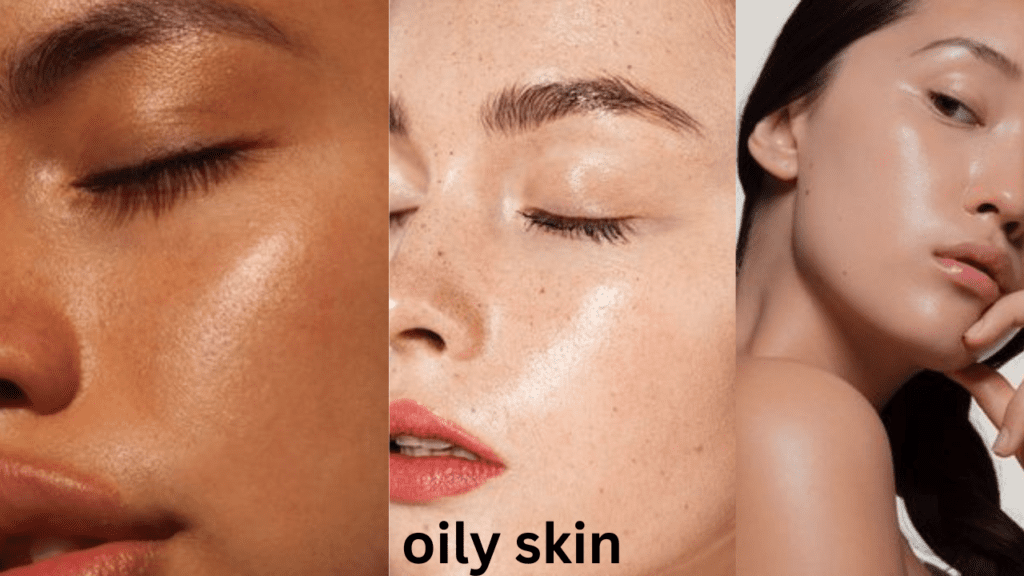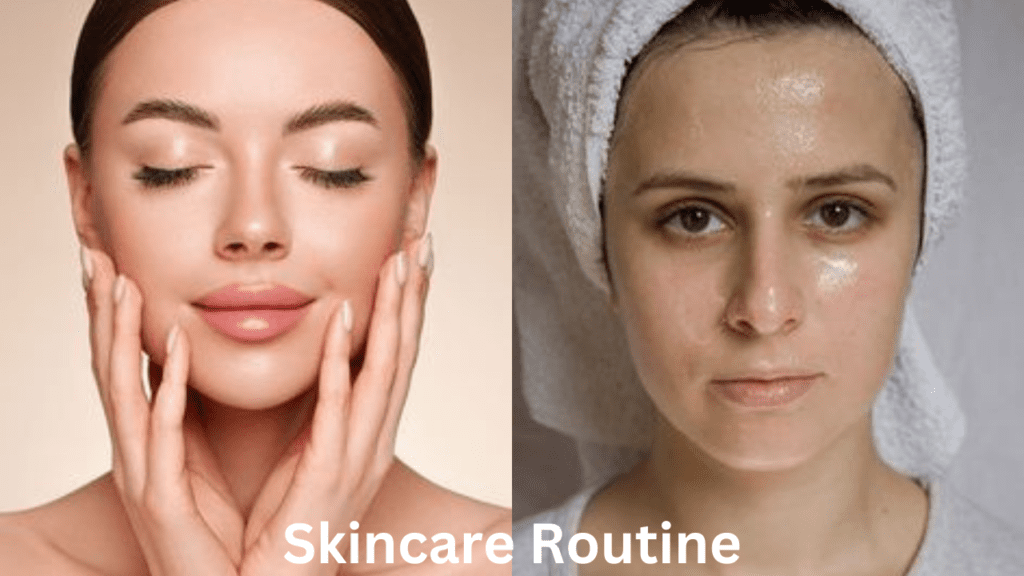Introduction:

Having oily skin can be a never-ending struggle that makes you feel uncomfortable and frustrated. In addition to giving your skin a glowing, greasy appearance, excessive oil production can lead to clogged pores, acne outbreaks, and other skin problems.On the other hand, you can control oily skin and enhance a more balanced, healthy complexion using the appropriate technique. We’ll look at several methods and ideas in this post to help you become less oily-skinned and feel better about your skin.
Understanding Oily Skin:
Before moving to the solution, it’s important to understand why oily skin occurs. Oily skin is usually the result of overactive sebaceous glands, which produce an excess of the skin’s natural oily sebum. Many factors can contribute to this overproduction, including genetics, hormonal fluctuations, diet, skincare products, and environmental factors.
Skincare Routine for Oily Skin:

It is important to establish a proper skincare routine for managing oily skin. Here’s a step-by-step guide to help you develop an effective diet:
1. Cleansing:
Choose a gentle, oil-free cleanser formulated specifically for oily skin. Cleansing twice a day, morning and evening, helps remove excess oil, dirt and impurities without stripping the skin’s natural moisture.
2. Exfoliation:
Regular exfoliation is essential to remove dead skin cells and prevent clogged pores. Choose chemical exfoliants with ingredients such as salicylic acid or glycolic acid, which can penetrate deep into pores and dissolve excess oil and debris.
3. Harmony:
To tighten pores and balance the skin’s pH levels, use a mild, alcohol-free toner. Look for substances that help reduce inflammation and control oil production, such as niacinamide or hazel.
4. Moisturizing:
Contrary to popular belief, oily skin still needs hydration. Choose a lightweight, oil-free moisturizer that won’t clog pores. Hyaluronic acid-based moisturizers are ideal for oily skin, as they provide hydration without adding excess oil.
5. Sun Protection:
Even if you have oily skin, you should always wear sunscreen. Choose an oil-free, non-comedogenic sunscreen with at least SPF 30 to protect your skin from damaging UV rays without making it overly oily.
Diet and Lifestyle Tips:
In addition to a healthy skincare routine, several diet and lifestyle adjustments can help regulate oily skin from the inside out:
1, Maintain a Balanced Diet:
Eat as many fruits, vegetables, lean meats and whole grains as possible, and limit your intake of processed foods, sugary snacks, and dairy products. Sugar- and refined carbohydrate-rich foods can increase insulin levels, which in turn causes an increase in sebum production.
2. Stay Hydrated:
To keep your skin moisturized and help remove toxins from it, drink plenty of water throughout the day. Maintaining adequate moisture improves general skin health and helps control oil production.
3. Manage Stress:
Hormonal changes caused by stress can worsen oiliness and cause breakouts. To manage stress, engage in stress-relieving activities such as yoga, meditation, or deep breathing exercises.
4. Get Enough Rest:
Lack of sleep can cause hormone imbalances and worsen skin conditions, such as excessive oil production. Try to get seven to eight hours of good sleep each night to help your skin heal and renew.
Professional Treatments:
In some cases, professional treatment may be necessary to effectively manage oily skin:
1. Chemical Peels:
Chemical peels that include glycolic or salicylic acid can help exfoliate the skin, clean clogged pores, and reduce oiliness.
2. Laser Therapy:
Intense pulsed light (IPL) therapy and laser resurfacing are two examples of laser procedures that can target and reduce oil production in addition to improving skin texture and tone overall.
3. Prescription Medications:
Dermatologists may recommend topical or oral medications, such as retinoids, antibiotics, or hormone treatments, to control oil production and reduce inflammation in cases of severe acne and oily skin.
Conclusion:
Although oily skin can be difficult to control, you can achieve a clear, healthy complexion and manage oiliness efficiently with the right skincare regimen, dietary habits, and lifestyle adjustments. Remember to be persistent and patient in your efforts, and do not be afraid to consult a specialist if necessary. You can bid farewell to smooth skin and welcome to a bright, balanced complexion by adopting these techniques into your everyday regimen.
About Features Fashion
Follow us for similar information, We will give you even better information related to clothes and fashion. We will give you some special information about fashion. Hope you will like our given information. like, oily skin mentioned in this article. feature fashion will give you daily updates. Follow featuresfashion.com for more information

